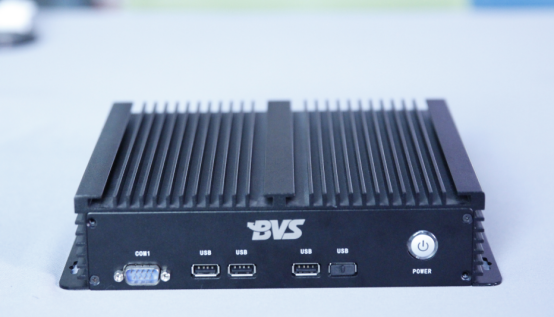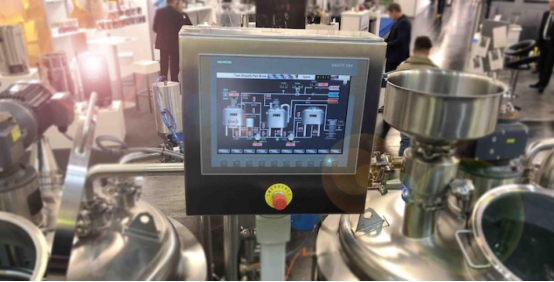Introduction
Industrial mini PCs, particularly fanless models, have revolutionized computing in challenging environments. These compact, rugged devices are specifically engineered for industrial applications where standard desktop PCs fall short. This article explores the essential features, benefits, and applications of industrial fanless computers, highlighting their role in enhancing efficiency and reliability across various sectors.
Industrial mini PCs, including fanless industrial PCs, are small form factor computers designed for harsh environments. Unlike consumer-grade PCs, these rugged fanless computers are built to withstand extreme conditions, featuring robust construction and advanced cooling systems. Their compact size allows them to fit into tight spaces, making them ideal for applications with limited real estate.
The compact form factor of fanless mini computers offers significant advantages in industrial settings. Their small footprint allows for installation in confined spaces, such as on production lines or within machinery. This space efficiency is crucial for maximizing floor space in operations. Moreover, their lightweight design facilitates seamless integration into existing systems without extensive modifications.
Fanless industrial computers are built to endure the rigors of harsh environments. They boast rugged enclosures made from durable materials that protect internal components from dust, moisture, and mechanical shocks. These industrial fanless PCs are designed to operate reliably in extreme temperatures, ensuring continuous performance regardless of conditions. This ruggedized design extends their lifespan, reducing the frequency of replacements and maintenance costs.

Standard desktop PCs often fall short in industrial environments due to their lack of durability. In contrast, fanless embedded PCs are engineered to excel in these demanding conditions. They can withstand:
· Space Constraints: Their compact size allows for installation in tight areas where traditional PCs would be impractical.
· Temperature Extremes: Fanless industrial computers operate effectively across a wide temperature range, ensuring reliability in diverse environments.
· Vibration and Mechanical Shocks: The ruggedized construction protects these PCs from the vibrations and shocks common in industrial settings.
Industrial mini PCs, especially rugged fanless PCs, find applications across various sectors due to their versatility. Common applications include:
· Manufacturing: Used for machine control, data acquisition, and monitoring production lines.
· Automation: Essential for controlling automated systems and robots.
· Transportation: Deployed in vehicles and transport hubs for real-time monitoring and control.
In these sectors, industrial fanless computers enhance operational efficiency, reduce downtime, and improve overall productivity.
Industrial mini PCs are equipped with high-performance processors and efficient cooling systems to handle demanding industrial tasks. Key features include:
· Connectivity Options: These PCs support a range of industrial I/O interfaces, including RS-232/422/485, GPIO, and Ethernet, ensuring seamless integration with industrial equipment.
· Customization and Scalability: Many industrial fanless PCs offer customizable options to meet specific application needs and can be easily scaled as operational demands grow.
Real-world examples illustrate the effectiveness of industrial mini PCs:
|
Manufacturing Plant: An automotive manufacturing plant integrated industrial mini PCs into their production line for real-time monitoring and control, resulting in a 20% increase in efficiency. |
|
Oil and Gas Industry: A remote oil extraction site used rugged industrial mini PCs for monitoring equipment performance, significantly reducing maintenance costs and downtime. |
|
Transportation Hub: A major railway station implemented industrial mini PCs to manage their surveillance and ticketing systems, improving security and operational reliability. |
These case studies highlight the transformative impact of industrial mini PCs on efficiency and reliability in demanding environments.

When selecting an industrial mini PC, consider:
· Performance: Ensure sufficient processing power and memory for your specific applications.
· Durability: Opt for ruggedized models with high IP ratings to withstand environmental challenges.
· Connectivity: Choose a PC with the necessary I/O interfaces for integration with existing systems.
· Cost: Evaluate total cost of ownership, including initial investment and long-term maintenance.
Choosing the right industrial fanless PC tailored to your needs ensures optimal performance and longevity.
The future of industrial mini PCs is shaped by emerging technologies:
|
-Industry 4.0: The rise of smart factories and interconnected devices will drive the demand for more powerful and intelligent mini PCs. |
|
-IoT Integration: Industrial mini PCs will increasingly serve as gateways for IoT devices, enabling advanced data collection and analysis. |
|
-Energy Efficiency: Advances in energy-efficient technologies will lead to the development of mini PCs that consume less power while delivering high performance. |
These trends will expand the capabilities of industrial mini PCs, making them integral to industrial operations.
Fanless industrial computers are indispensable in modern industrial environments. Their compact form factor, rugged design, and advanced features enable reliable performance in harsh conditions where standard PCs cannot. By enhancing operational efficiency and reducing downtime, fanless mini PCs play a critical role in various industries. As technology advances, their importance will only grow, making them a cornerstone of industrial innovation. Investing in industrial fanless PCs is a smart and forward-thinking choice for businesses looking to improve their computing infrastructure.

Click to confirm
Cancel